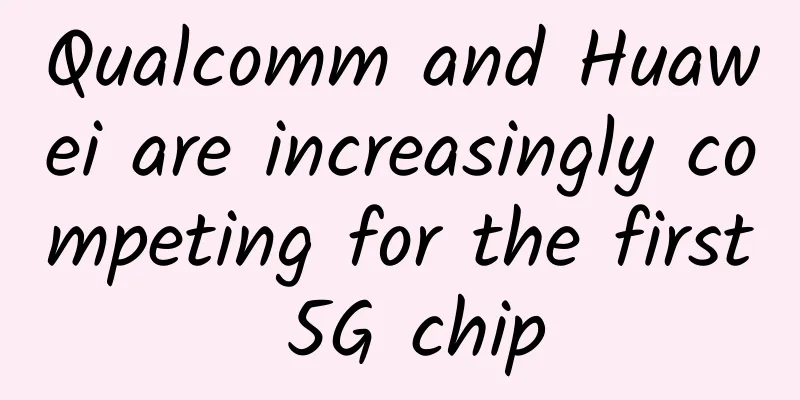Hisense in the US becomes a foundry, Sharp in America may be snatched away by Foxconn

|
In April this year, Foxconn finally acquired 66% of Sharp's shares for 388 billion yen. This acquisition, which spanned nearly five years, came to an end with Terry Gou's tough attitude and huge aid. Earlier this year, Sharp transferred its American assets to Hisense (Hisense Group, Hisense Americas) for US$23.7 million. The Internet trolls once misled the public into misinterpreting it as "China's Hisense's rise to internationalization and its full acquisition of Japan's Sharp TV." However, this bowl of chicken soup was overturned in less than half a year because Sharp married into Foxconn. After Foxconn's acquisition intention is reached, the two parties will also enter the stage of friction, adjustment and integration. In addition to personnel transfers and functional divisions, Guo Taiming also intends to correct the wrong strategic decisions made by Sharp before. Spending money to acquire overseas companies In August 2015, Japan's Sharp, which had been losing money for years, reached an agreement with China's Hisense to sell all the shares and assets of Sharp's Mexican factory for US$23.7 million. At the same time, Hisense will obtain the brand usage rights and all channel resources of Sharp TV in the Americas. Hisense hopes to take advantage of Sharp to take advantage of internationalization and implement the Hisense and Sharp dual-brand strategy in the American market. Before Hon Hai invested heavily in Sharp, Sharp had long relied on selling assets to maintain its operations. When Sharp withdrew from the European market, it also sold its trademark to the Slovak company UMC. Hisense's takeover of Sharp's North American market was indeed a huge positive move for Hisense's internationalization at the time, but the wishful thinking changed significantly after Terry Gou's involvement. Before Foxconn acquired Sharp, many people, including Hisense, believed that the fate of Sharp's brand would likely follow the example of Japanese home appliance companies such as Sanyo and Toshiba, which would rely on selling businesses and brand usage rights to gradually cash out and disperse. However, with the huge investment from Hon Hai, Terry Gou has new expectations and hopes for Sharp, a century-old brand. After acquiring Sharp, Hon Hai invested nearly 200 billion yen to promote the development of Sharp's OLED technology and business. It strives to return Sharp's TV and display technology to the "first-tier" of the market. Hon Hai also made it clear that it is necessary to revive Sharp's white goods business in overseas markets. Four years remaining after five years of authorization Previously, Hisense and Sharp signed a five-year licensing agreement for the Sharp TV brand in the American market. After Foxconn acquired Sharp, it is likely that the licensing agreement will be difficult to continue to sign in the future. Hisense's attempt to achieve internationalization by acquiring the right to use the Sharp brand has also fallen into an embarrassing situation. Although Hisense can gain economic benefits from the American market by selling Sharp TVs within five years, the Sharp image created by Hisense will be returned to Hon Hai Group in four years. If Hisense gives up its advantage in the Sharp brand and bets all on its own brand, this strategic dilution will make the acquisition of up to 23 million US dollars meaningless. According to Reuters, Sharp is evaluating its overseas TV brand licensing deals, hoping to enhance its global influence with the assistance of Foxconn. Sharp said in a statement: "We have decided to evaluate our current brand licensing business in Europe and America and are currently studying various possibilities." At the same time, Nikkei News also reported that Sharp hopes to buy back the trademark rights from Hisense, but the negotiation matters between the two parties are currently unclear. Regarding the rumor that Sharp has repurchased the trademark ownership, Hisense has a very tactful attitude. Liu Bin, deputy general manager of Hisense Group International Marketing Company and general manager of Hisense North America, responded: "We have not received any official information about the withdrawal of brand authorization. Sharp cannot breach the contract, and our company has no reason to discuss this matter." Chinese home appliance companies rely on acquiring foreign companies to enter the international regional market, which is one of the shortcuts to achieve brand internationalization. However, when acquiring or cooperating, companies need to have a forward-looking strategic vision and have sufficient understanding of the acquirer. Hisense's acquisition of Sharp was originally a happy thing for Chinese home appliance companies to go abroad. However, due to the lack of strategic vision, Hisense seems to be reduced to Sharp's "OEM factory" in America. As a winner of Toutiao's Qingyun Plan and Baijiahao's Bai+ Plan, the 2019 Baidu Digital Author of the Year, the Baijiahao's Most Popular Author in the Technology Field, the 2019 Sogou Technology and Culture Author, and the 2021 Baijiahao Quarterly Influential Creator, he has won many awards, including the 2013 Sohu Best Industry Media Person, the 2015 China New Media Entrepreneurship Competition Beijing Third Place, the 2015 Guangmang Experience Award, the 2015 China New Media Entrepreneurship Competition Finals Third Place, and the 2018 Baidu Dynamic Annual Powerful Celebrity. |
>>: Chen Xudong: Lenovo has revived Moto's revolutionary and innovative spirit
Recommend
The sunset is so beautiful! But when I took the photo with my phone, it felt wrong...
Recently, breathtaking sunsets have appeared freq...
How much does it cost to be an agent of Zhuzhou Home Furnishing Mini Program?
Why should you be an agent for WeChat Mini Progra...
Meizu App Store promotion information flow advertising delivery process and billing method!
1. Introduction to advertising types 1. App Store...
This article will help you understand the video recommendation rules of Bilibili!
Retail e-commerce recommends your favorite daily ...
Who is abandoning Sacon kitchen appliances? Sunrise in the East is not the savior
For Sunrise East, which is eager to get out of th...
2018 Global & Chinese Search Engine Market Share Rankings!
After doing promotion for so long, do you know wh...
5 marketing strategies for online and offline brands
Different types of brands engage in different for...
10 secrets of Apple: Inside Apple's product design studio
If we were to add an adjective to Apple, there wo...
Saury self-media + Douyin operation course, teach you step by step how to make money by playing short videos
Saury self-media + Douyin operation course, teach...
Hangzhou SEO Training: What should you pay attention to when positioning your online marketing promotion?
With the continuous development of the Internet e...
How to write a hot-selling product details page or product introduction?
Product introduction and product details are task...
Uncovering the secrets of online train ticket purchasing: The most hated thing is the "cheap" tickets
On December 20, 2014, the day before the 2015 New...
Download the full set of Kuaicai Business School advanced courses
The advanced financial management course of Kuaic...
The four major matrices of Tik Tok promotion and operation!
What are the ways to operate a matrix account? Ho...









